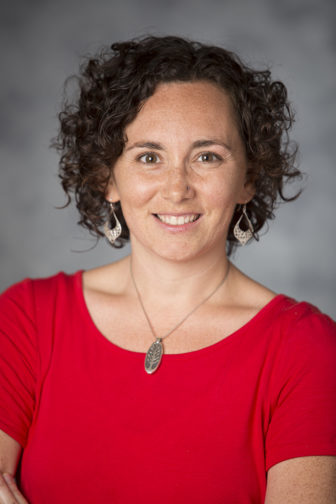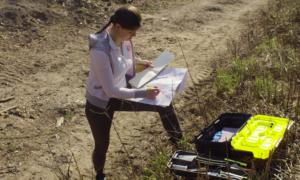
pathdoc/Shutterstock
.
In education, we push “college for all” while wearing university swag and celebrating acceptance letters. We spend more time talking about who got into college than who came home after first semester because it cost too much.
In youth work and job training programs, we find jobs for our kids and count placements as success, even when those same placements don’t pay a livable wage or promise some type of career ladder.
Cash is as critical a currency for young people’s future success as academic credentials, competencies and having the right kinds of connections. Without money, young people cannot compete. They cannot complete college or take the financial hit from quitting a bad job to finding a better one. We need to help our young people earn and save some cold, hard cash.
Being strapped for cash changes how young people think and act. Poverty changes our brain chemistry, making it harder to learn and remember new things or to form connections. A “scarcity” mindset is a real thing, well-documented by economist Sendhil Mullainathan and psychologist Eldar Shafir. They found that being poor lowers a person’s cognitive capacity even more than pulling an all-nighter. Not having enough money consumes people’s attention, causing them to focus on what they lack and neglect what they have, especially if what they have requires a lot of time or attention.
Hard to think straight
I see this play out on a daily basis. A close family member of mine has very little money, and it affects everything she does. She is consumed by worry and finds it hard to sleep. She is tired and frustrated. Lack of money dictates what she can eat, do and enjoy. This limits her capacity and interest in taking on and learning new things. She works every day in a job that doesn’t pay enough, because there’s no time to go out and look for something better, but “at least it’s a job.”

Stephanie Malia Krauss
Our kids need cash, and a lot of it, if they are going to get into good schools, top programs, internships and the “right” first job. They need cash to meet basic needs and to hit developmental milestones. Think Maslow. Cash pays for the education and employment pathways they need. Without enough money, our young people have to stop, go a different way or turn around and go back.
Consider two Michaels I met recently.
Michael D. was my 30-year-old Lyft driver in Williamsburg, Va. He picked me up from the airport at midnight, which is the start of his night shift. Michael has two full-time jobs in addition to his part-time job as a driver. For 10 years, Michael has worked days as a crisis manager for adults with developmental disabilities. When some unexpected expenses came in, Michael got a second job as a case worker at a group home.
Even though he likes his jobs, he cannot advance because he doesn’t have a college degree. He is smart enough. He just cannot afford it. With more than one job and no savings, he has no time or money to pursue his college degree, or even to look for a better job. He’s stuck where he is. And he is exhausted.
Michael Tubbs is the almost 30-year-old mayor of Stockton, Calif. A child of Stockton, he was raised by a single mother and rose to national prominence because of his age, charisma and bold vision. I met Tubbs when he spoke to a group of philanthropists about Stockton’s cutting-edge basic income experiment, which is being rolled out in partnership with the Economic Security Project. The mayor is trying to help people like Michael D., who work but don’t have enough money to meet their basic needs. Tubbs believes that an extra $500 per month could dramatically improve the living conditions and life outcomes of people like Michael D. in his community.
Michael D. illuminates the problem that cash can solve. Michael Tubbs showcases a possible strategy for getting our young people the cash they need. We must acknowledge the real role that cash plays in getting our young people the education and employment opportunities they need, as well as the mental wherewithal to take full advantage of those opportunities once they are there.
Every one of us must consider the role that cash assistance, tax credits, savings and financial literacy programs play in our broader efforts and the overall success of our kids. We need to care about cash. Let’s make sure our young people enter adulthood with opportunities, along with the money they need to get by.
Stephanie Malia Krauss is the director of special projects at Jobs for the Future, focusing on cross-systems approaches to the economic advancement of vulnerable populations, including student-centered learning. She was previously a senior fellow with the Forum for Youth Investment and Corporation for a Skilled Workforce.































